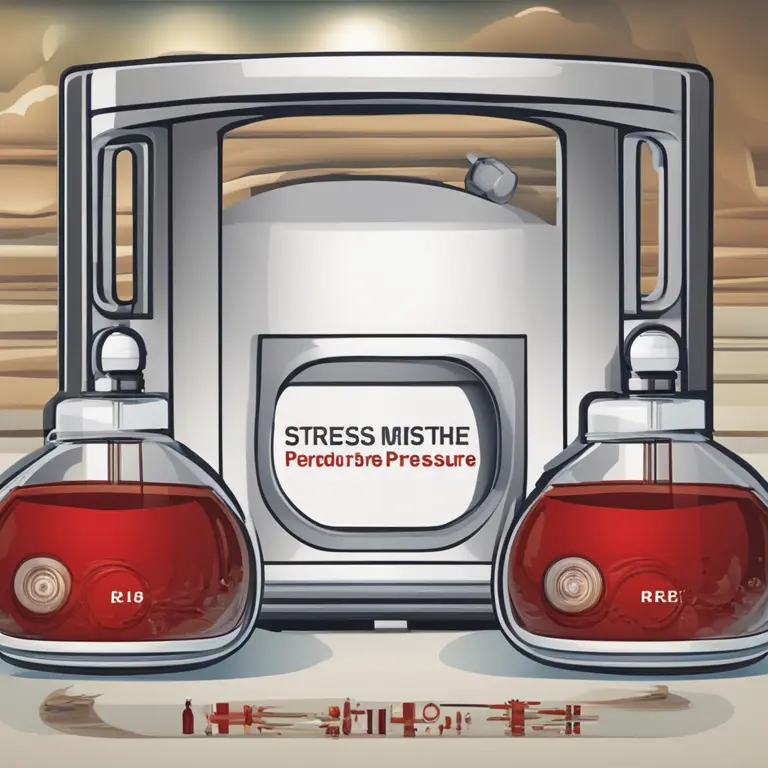
The Calming Pulse: How Meditation Can Lower Blood Pressure
Discover the serene connection between meditation and reduced blood pressure, and how this age-old practice can promote cardiovascular health.
article by Hina Kurosawa
The Stress-Blood Pressure Link
Stress is a known contributor to high blood pressure, a condition that affects millions worldwide, lending urgency to finding effective coping mechanisms. Meditation offers a sanctuary of calm, directly combatting stressors that elevate cardiovascular strain. Chronic stress triggers a cascade of hormones like cortisol and adrenaline, which tighten blood vessels and raise heart rate. By incorporating meditation into daily routines, individuals create a counterbalance to stress, invoking a relaxation response that can dilate blood vessels and soothe the nervous system. The ensuing tranquility doesn't merely uplift the spirit; it translates into measurable reductions in blood pressure readings, a silent signal of healing within.

Mindfulness and Blood Pressure Control
Mindfulness meditation has emerged as a powerful tool to maintain healthy blood pressure levels, according to contemporary studies. This meditative form trains attention on the present moment, encouraging practitioners to observe their thoughts and sensations without judgment. Such in-the-moment awareness can disrupt the typical stress response patterns that elevate blood pressure. Over time, those who practice mindfulness may develop a more resilient response to stressors, culminating in a more regulated cardiovascular system. Mindfulness isn't just a mental exercise; it's a heart-friendly practice with potential to safeguard against hypertension.

Breathing Techniques to Ease the Heart
Breathwork is a central element of many meditation practices, and its influence on blood pressure is profound. Slow, deep breathing acts as a natural pacifier for the heart, prompting the vagus nerve to slow the heart rate and lower blood pressure. Diaphragmatic breathing, in particular, fosters a profound sense of relaxation that permeates the entire body. By integrating controlled breathing exercises into meditation sessions, individuals harness an innate ability to regulate their cardiovascular systems, turning a simple inhale and exhale into a silent remedy for hypertension.

The Empirical Evidence
Recent clinical trials and research studies have offered empirical support to the notion that meditation can be a boon for blood pressure. Meta-analyses reveal consistent drops in both systolic and diastolic blood pressure among those who engage in regular meditation. Health organizations, recognizing these benefits, increasingly advocate for meditation as part of a comprehensive approach to heart health. As evidence mounts, meditation is transitioning from alternative therapy to a mainstream recommendation for those looking to manage their blood pressure effectively.

Incorporating Meditation into Daily Life
For the uninitiated, incorporating meditation into a daily routine could seem daunting. However, the process can be gradual, starting with short sessions and simple techniques. Guided meditations, apps, and classes can serve as accessible entry points, with many available resources tailored to beginners. Consistency is key; even 10 minutes a day can pave the way for improved cardiovascular wellness. Importantly, it's never too late to start, and the cumulative effects of daily meditation can contribute to lasting changes in blood pressure levels and overall heart health.
The Holistic Approach to Cardiovascular Health
While meditation can aid in lowering blood pressure, it should be considered as part of a holistic approach to health. A balanced diet, regular physical activity, and maintaining a healthy weight are equally critical for cardiovascular health. Meditation enhances these lifestyle changes, providing a mental framework that supports healthier choices and a more proactive attitude toward well-being. It's a partnership of mind and body, where meditation strengthens the resolve to live healthily and the body reaps the cardiovascular rewards.
Published: 1/18/2024
Modified: 1/18/2024
More predictions
Come back here soon to learn more about yourself and your future


Mindful Meditation Techniques Explored
Discover effective meditation mindfulness methods to enhance your wellbeing and spiritual journey.


Mindfulness & Meditation: A Path to Inner Calm
Delve into our Mindfulness Meditation Program designed to guide you on a serene journey towards inner peace and clarity.


Exploring Your Mindful Meditation Journey
Learn to lead a mindfulness meditation with practical steps and techniques for a peaceful mind and balanced life.